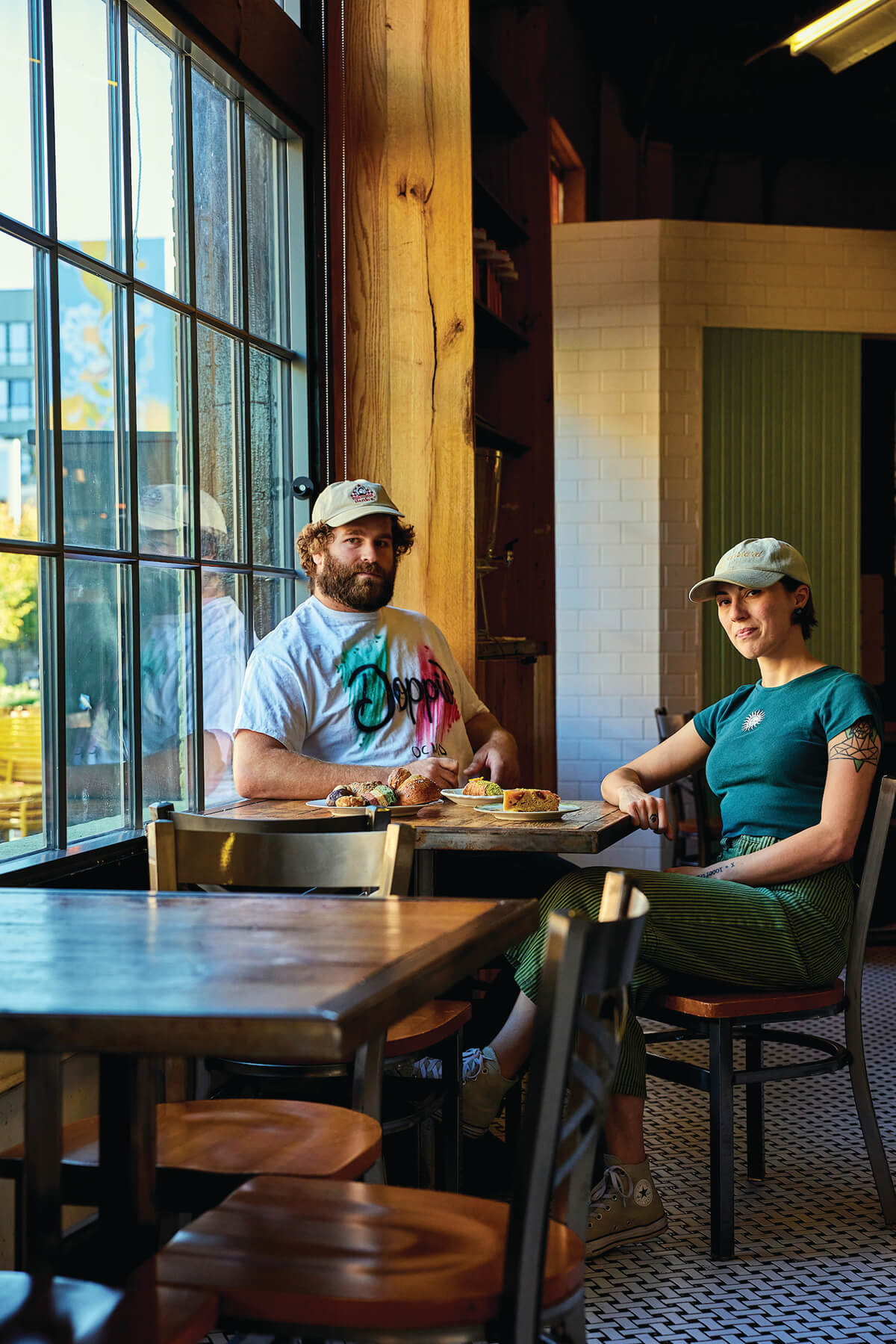Food & Drink
Doppio Pasticceria Owners Share Their Passion for Sicilian Cuisine in Remington
Before the big move to their permanent home on W. 29th Street, we catch up with the owners about what inspires their food.

Luke Ilardo was selling specialty milled flour at local farmers markets in 2018 when he struck up a conversation with Megan Cowman, who was a regular. “I always like to ask people what they are making,” says Ilardo, whose family owns pizzerias in Baltimore and Reno, Nevada. “Megan, who bought some of our more interesting flours, and I started to talk about cooking and working in restaurants and our cultural backgrounds.”
They hit it off and Ilardo finally worked up the nerve to ask her out. And here’s how you can tell the couple is really into food: On their first date, they bought a used mini refrigerator from Craigslist to convert into a curing chamber for charcuterie. “What’s more romantic than rotting meat?” jokes Ilardo.
From there, the two started cooking together and bonded over their passion for food, especially their love of Sicilian cuisine. Ilardo’s father hailed from Lascari, a small town just outside of Palermo. Cowman’s great-grandparents were from Santo Stefano, about 70 miles from Lascari. And while Cowman says that what she grew up eating was more Italian-American-style, Ilardo experienced the real deal from cannoli to ricotta pie.
Soon, the duo started selling arancini at those same local farmers markets before launching Doppio Pasticceria, their Sicilian bakery-cafe, in R. House last year. As of now, they’re on North Howard Street (in the former home of JBGB’s in Remington), but any day now, they’re planning a move to their permanent brick-and-mortar home at 300 W. 29th Street across from R. House.
“We finally finished the curing chamber this year,” says Cowman with a laugh. “Time got away from us—we just made our first beautiful round of coppa together.”
Why did you decide you wanted to focus on Sicilian cuisine?
Ilardo: I grew up listening to my father, grandmother, grandfather, uncles, and aunts talk about how there’s not a lot of good Sicilian food, and specifically baked Sicilian goods, around Baltimore. It’s such a wide umbrella of so many cultures and cuisines. Sicily has been conquered by everyone and they’ve all left their marks—there’s Greek influence, there’s Roman influence, North African and Arabic influence. [It feels] more Western European, with French and Spanish influences—even the Visigoths were there for a while. This gave us a broad creative license to make whatever we wanted.
Talk a bit about your background.
Cowman: I grew up outside of Westminster and surrounded by farmland. I grew up with my mom’s mom. She gardened and cooked every day. Those are my fondest childhood memories—growing food, picking food, preparing food, especially with my grandmother. At 9, I wanted to cook Thanksgiving dinner.
Ilardo: I started working in my dad’s pizzeria in Pigtown when I was 10. I thought it was the whackest thing just being in a pizzeria all day—I thought it was the worst that my parents made me work. I got burnt-out working in kitchens, but in removing myself and trying a few other things, I realized this is was something I felt deeply connected to.
What do you like about cooking?
Cowman: No matter where I’ve traveled in the world, that’s what you talk about. It also helps me understand my place in the bigger scheme of things. I like seeing how the ingredients, the food, and the land fit together—it makes me feel whole.
Ilardo: It’s the easiest way to connect. Everyone loves food and everyone needs food and everyone is excited to tell you what they like to eat and what they don’t like to eat. It’s a really special thing to share a meal with someone. And if I’m cooking for you, I really care about you—it’s the love language I was taught
Where did the name come from?
Cowman: Doppio means double, and there’s two of us. Doppio has two sides—it’s a bakery and it’s a restaurant. And it’s even a nod to how you order an espresso in Italy.
Ilardo: Sicilian cuisine is influenced by everyone, it has this duality, and at the same time it’s so singularly its own thing.